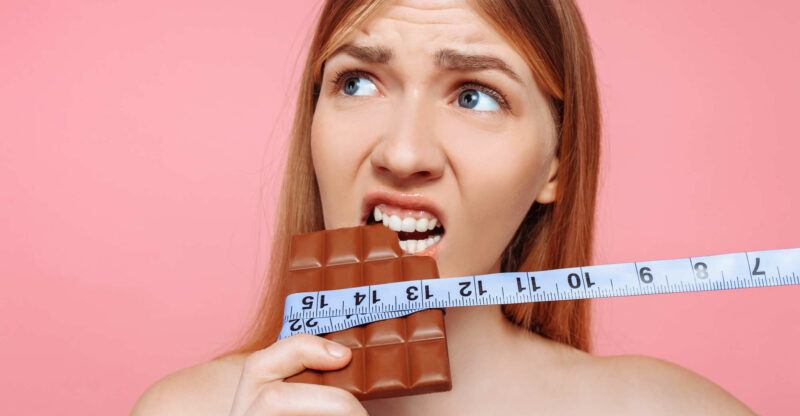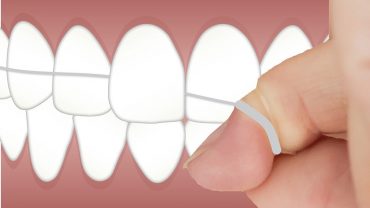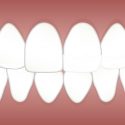Can Tooth Decay Be Reversed Naturally?
Tooth decay is an awful thing – it is not only bad for your health in general, but it can really affect your confidence in your beautiful smile.
If you have been wondering “Can tooth decay be reversed naturally?” you are not alone – and the good news is that there is a lot you can do.
Can Tooth Decay Be Reversed Naturally?

Obviously, the best thing you can do to is to avoid the things that cause tooth decay in the first place.
However, if it does set in there are a few things you can do, before you have to resort to going to the dentist and having a filling or extraction.
- Brush your teeth well. Ideally using an electric toothbrush, brush your teeth for two minutes, twice a day.
- Use a salt water rinse. Boil a cup of water and dissolve a few teaspoons of salt into it. When cooled, use this as a mouthwash.
- Have a good diet. Getting the correct amount of nutrition and limiting sugary drinks and snacks is a great way to improve your oral health.
- Take supplements. Ensuring that you have adequate amounts of minerals and vitamins in your diet can help your teeth as well as the rest of your body.
- Oil pulling. Although it is not very pleasant, swishing a small amount of oil (coconut works best) around your teeth and gums can really help your oral health.
Here is a little video explaining the benefits of a good diet, plus oil pulling and how to do it effectively:
What Is The Fastest Way To Reverse Tooth Decay?
Amazingly, if you have the very beginnings of tooth decay and cavities, it doesn’t actually spell the end for your teeth.
If you catch it in its early stages, you can reverse tooth decay with a few simple changes to your lifestyle.
This is not a super quick fix and it won’t get better overnight, but you can help yourself to better teeth with a few simple changes.
- Improving your diet is a big one – making sure you eat a balanced variety of foods and limit simple carbohydrates and sugars can significantly improve your oral health.
- Brushing teeth well is something we all have drummed into us from a young age, and the reason is that is really works! Two minutes, twice a day (more often if you have time) is the best thing you can do for your teeth (even if you run out of the toothpaste).
- Add probiotics to your diet. Fermented foods and drinks like sauerkraut and kombucha can help to increase the amount of good bacteria in your mouth.
- Floss. There are many tiny areas in the mouth and between the teeth that brushing alone can’t reach – flossing or using interdental sticks can really help.
This article is focused on children, but it contains useful information for all of us on how to reverse tooth decay quickly.
What Kills Tooth Decay?
Bacteria causes the tooth decay, along with poor oral hygiene. If you want to tackle it, you first have to deal with the bacteria and the brushing!
There are many factors involved in tooth decay, and not all are easy to fix, especially once the decay has become established and started to cause cavities.
Keeping on top of your oral hygiene routine – that is, brushing, flossing and mouthwash – is just about the best way to kill tooth decay.
You can also take a look at what you are putting into your mouth – excessively sugary foods, or acidic drinks, are a great way to encourage tooth decay.
If you sleep with your mouth open, or you have a consistently dry mouth, you may notice more decay – saliva is one of the things that can help prevent tooth decay.
Chewing sugar free gum that contains xylitol has been shown to be a useful aid in keeping tooth decay at bay.
Ensuring you have adequate levels of vitamin D is also important – this vitamin helps the absorption of calcium, which helps teeth.
Using a fluoride toothpaste has long been shown to help prevent tooth decay, and to keep your pearly whites strong and white.
Interestingly, licorice root can help to battle the bacteria that cause tooth decay. Add some into your diet, it may surprise you!
Can Decaying Teeth Be Restored?
The answer to this one really depends on how far the decay has gone – in many cases it is possible to restore the teeth, in some cases not.
Tooth decays starts as little white spots on the teeth, before progressing into holes in the layers of dentin.
If you catch it early enough, it is possible to reverse the signs of tooth decay. You may need a little help from your dentist, and you will definitely need a good brushing routine!
If your teeth are filled with holes (even under your veneers!), and the damage has gone all the way to the pulp of the tooth or further, you may need an extraction.
Keeping on top of your oral hygiene in the first place is the best way to ensure that you don’t have to have expensive and painful tooth surgery.
At What Point Are Teeth Not Fixable?
It can be hard to know when a tooth has gone too far to be saved, and unless you are dentist you probably won’t know!
If you are worried about decay, cavities or even a cracked or broken tooth, get straight to your dentist for advice and a plan.
Happily for most of us, there is usually something that can be done, and professionals will do whatever they can to save your smile.
If a tooth has a fractured or broken tooth root, severe decay, problems with wisdom teeth, or a severe or recurring infection, you might lose one or two.
Generally though, dentists are as interested as you are in saving your teeth for you, and will do everything they can to preserve your pearly whites.
If you have any concerns or worries, book yourself a dentist appointment – it might scare you to think of it, but it will help your teeth in the long run to have them seen by a professional.
Final Thoughts
Reversing tooth decay is not easy, as you can see – the best way to do so is to take really good care of your oral health to start with.
However, a little bit of tooth decay needn’t be the end of the world – there are things that you can do yourself to help reverse it naturally.





